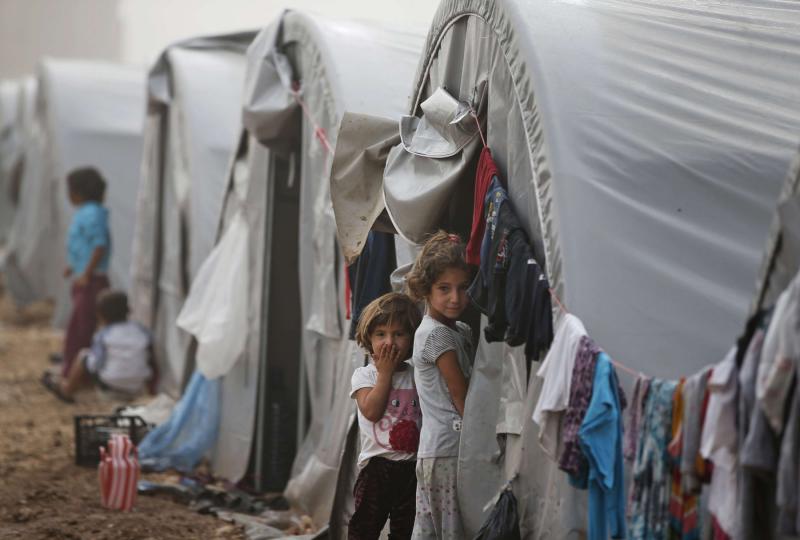With Turkey’s ambitions to transplant approximately 1 million displaced people, the cost is likely to be significant
TUNIS – Turkish President Recep Tayyip Erdogan told the country’s state broadcaster TRT that he intends to settle approximately 1 million Syrian refugees in the so-called “safe zone” that Ankara carved out in north-eastern Syria.
Foreign Policy magazine, however, suggested that the relocation of Syrians to the territory in the historically Kurdish-dominated region may have already begun. The magazine referred to Turkish media reports in November indicating small numbers of refugees had been moved into the hazardous region.
Turkey shelters some 3.5 million refugees from Syria’s nearly 9-year-old civil war, 2 million of whom it previously said could be relocated to a “safe zone” in north-eastern Syria.
While Turkey’s plan for a 450km-long safe zone has not yet materialised, Ankara has secured a strip of Syrian territory. In October Turkish forces, supported by local militias, confronted Kurdish forces along Syria’s border and seized territory of about 120km from the Ras al-Ain to Tal Abyad and reaching approximately 18 miles into Syria.
While shipping 1 million refugees into the area — a figure that surpasses the area’s current population — would destroy any ethnic balance, Foreign Policy suggested the process may be under way.
The magazine reported that many of those relocated to the area are families of Turkey-backed fighters from elsewhere in Syria, raising the spectre of confrontations between the occupiers and Arab Kurdish inhabitants of the formerly Kurdish-administered region.
None of the facilities typically associated with large refugee placements is present in north-eastern Syria. Families that have been moved to the area found temporary lodging in rented accommodation or settled in makeshift camps.
With Turkey’s ambitions to transplant approximately 1 million displaced people, the cost is likely to be significant.
Reuters reported on December 9 that Turkey approached Germany, France and Britain on the sidelines of the recent NATO summit regarding cooperation in relocating refugees. However, Reuters said the entreaties were unanswered, leaving Turkey with the bill, and the responsibility, for the refugees’ welfare.
While stability in the area has improved since Ankara signed deals with Russia and the United States to halt its advance, the territory remains extremely hazardous.
“North-eastern Syria is undergoing a new equilibrium between the Russians, the Turks and the US-led coalition,” said Nicholas Heras, a Middle East security fellow at the Centre for a New American Security. “The area is unstable because there remain questions over whether Turkey may continue its operation into north-eastern Syria.”
Local factors could prove equally deadly to an incoming refugee population. “There are also newly reinvigorated and active Islamic State sleeper cells that are operating throughout that region and potential for Iran-inspired attacks against US forces in eastern Syria, especially in Deir ez-Zor,” said Heras.
This invites “questions as to the extent that north-eastern Syria won’t become another far more active and far more deadly frontline in the Syrian conflict,” Heras said.
A further risk to the stability of Turkey’s “safe zone” is Syrian President Bashar Assad, who is keen to be seen as delivering on his repeated commitments to reclaim “every inch” of Syria.
“Assad can and likely will replicate his strategy of steadily eroding Turkey’s position by allowing insurgent attacks on Turkey’s safe zone and by launching limited attacks to take territory over time, then de-escalating with (Russia acting as broker) once tensions get too high,” said Ryan Bohl, a Middle East and North Africa analyst from consultancy Stratfor.
For the refugees, many of whom fled to Turkey to escape Assad’s rule, the situation remains precarious. “In the long run, the refugees do face regime attacks in some form or another and the potential they will end up back under Syrian control eventually,” Bohl said.
With their options limited, the refugees, many of whom include families, have little room for manoeuvre. Unwanted in Turkey, where they are subject to discrimination and violence, they have little leverage against Ankara’s edicts.
However, Heras said, for those looking to continue to evade Damascus, there may be some hope.
“The fact of the matter is that the only really secure place for an internally displaced Syrian in north-eastern Syria, (if they want) to keep themselves away from the clutches of the regime, is to go into the Kurdistan region of Iraq,” Heras said. “The Kurdistan region of Iraq is, generally speaking, a neutral zone where the Iranian influence is present but not overwhelming and Assad doesn’t have much influence there.”

